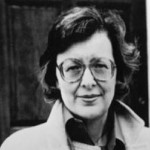Penelope Lively, How It All Began, characters Henry and Charlotte on aging
3/20/15 “UNTIL I GO.” A LIFETIME OF READING PENELOPE LIVELY
“Nowadays, you eye the young and remember…[h]ow it was to have smooth skin and a supple body, to be able to bend and squat and lift and run for a bus and skip down the stairs. To have this long unknowable future, in which lurked heaven knows what, and it is the mystery that is so alluring. Your own future is also unknowable, except that you can make a few shrewd guesses, and it is not particularly alluring.”
Penelope Lively is among a handful of authors who started writing when I started reading and have now progressed to writing characters at the long end of life, where I find myself.
Born in 1933, Lively published her first children’s book in 1970 and her first adult novel in 1977 (Road to Litchfield). I was too old to read her children’s books but at the right age to begin with Road to Litchfield and read her novels as they came out. Only recently did I read How It All Began, which appeared in 2011. The quote above is by the woman at the heart of the novel, a victim of a street mugging with consequences in a number of lives. But it’s not the story, fine though it is, that struck me; rather, Lively’s commentary through the eyes of older characters, Henry and Charlotte.
“In the buses, Henry is sometimes aware that there do not seem to be many others like him—elderly white male wearing suit and tie, with raincoat over arm, and that the bus speaks in tongues, most of them unfamiliar to him. In his youth, the Britain of fifty years ago, he recognized the class divide, both as a social phenomenon and something you were aware of all around you; there were distinct planes of existence then, oh dear me, yes. But today’s disparate and polyglot populace is another matter; you cannot place anyone in context, you cannot judge prosperity, hazard a guess at occupation, know if this person would speak English, Russian, Bulgarian, Serbo-Croat, Urdu, Pashto.”
A personal note: On early trips to London I remember, upon returning home, thinking New York and Washington looked so diverse. London has caught up.
In the novel Charlotte reads a book by a psychologist (Douwe Draaisma) Why Life Speeds Up as You Get Older “which attempted to explain the phenomenon—for phenomenon it is, apparently, universally reported.” Charlotte observes in Lively’s novel. “One persuasive explanation has to do with the changed nature of experience itself; when we are young, novelty abounds. We do, see, feel, taste, smell newly, day after day; this puts a brake on time. It hovers, while we savor each fresh moment. In old age, we’ve seen it all, to put it bluntly. Been there, done that. So time whisks by. Ah, that’s why—those interminable days of childhood.”
Another personal note: Doesn’t the more obvious explanation lie in the fact that the year between 66 and 67 is 1/63rd of conscious memory, so as it passes seems shorter than the year between 6 and 7, which was, as it passed, one-third of total conscious memory? (Maybe Draaisma also posits this theory in his book, and Lively didn’t need or want it for her novel.)
Inside Charlotte’s head elsewhere in the novel: “You are on the edge of things now, clinging on to life’s outer rim. You have this comet trail of your own lived life, sparks from which arrive in the head all the time, whether you want them or not—life has been lived but it is all still going on, in the mind, for better and for worse. But don’t imagine that anyone else wants to know about it; this narrative is personal, and mind you remember that.”
And, Charlotte again: “Alone, you most miss that abiding interaction, the to and fro of it.”
The third-person narrator of Charlotte: “The past is not gone, but is now that abiding ballast without which she would capsize. She visits constantly, in appreciative recognition of that moment, this place, those people. Her head is full of what was said—what Tom said, what Rose said, in a different incarnation, young Rose, child Rose. Marvelous, she thinks, the way in which it all goes on still, not lost, surging up unsummoned, indestructible. Until I go.”
Thank you, Henry, Charlotte, thank you Ms. Lively.
Until I go. The phrase rings with as much resonance for me at 67, a man with two heart attacks behind him, as they must for the author at 82. What a way with simple words has Penelope Lively. What a pleasure it’s been to read her books over the course of my lifetime.
(Photo of Ms. Lively from themanbookerprizes.com)
Gary Garth McCann
First-prize winner for short works and for suspense/mystery, Maryland Writers’ Association, Gary Garth McCann is the author of the novella Young and in Love? and of the novels The Shape of the Earth and The Man Who Asked To Be Killed, praised at the Washington Independent Review of Books. His most recent published stories are available online in Chelsea Station Magazine, Erotic Review Magazine, and in Mobius: The Journal of Social Change. His other stories appear in The Q Review, reprinted in Off the Rocks, in Best Gay Love Stories 2005, and in the Harrington Gay Men’s Fiction Quarterly. See his blogs at garygarthmccann.com and streamlinermemories.com.
- Web |
- More Posts(57)